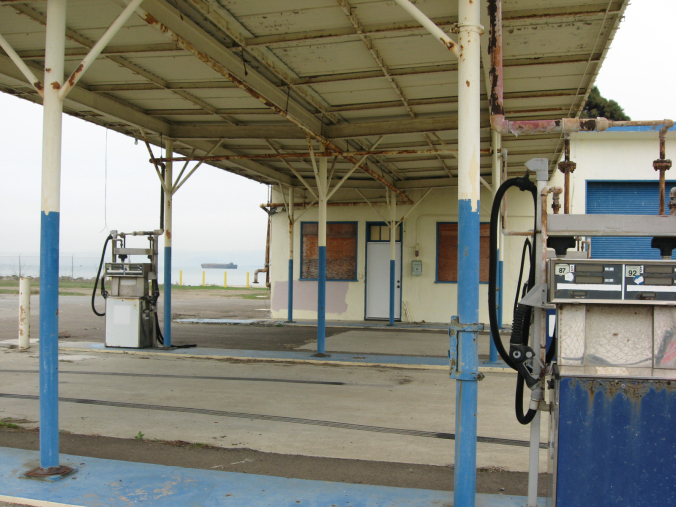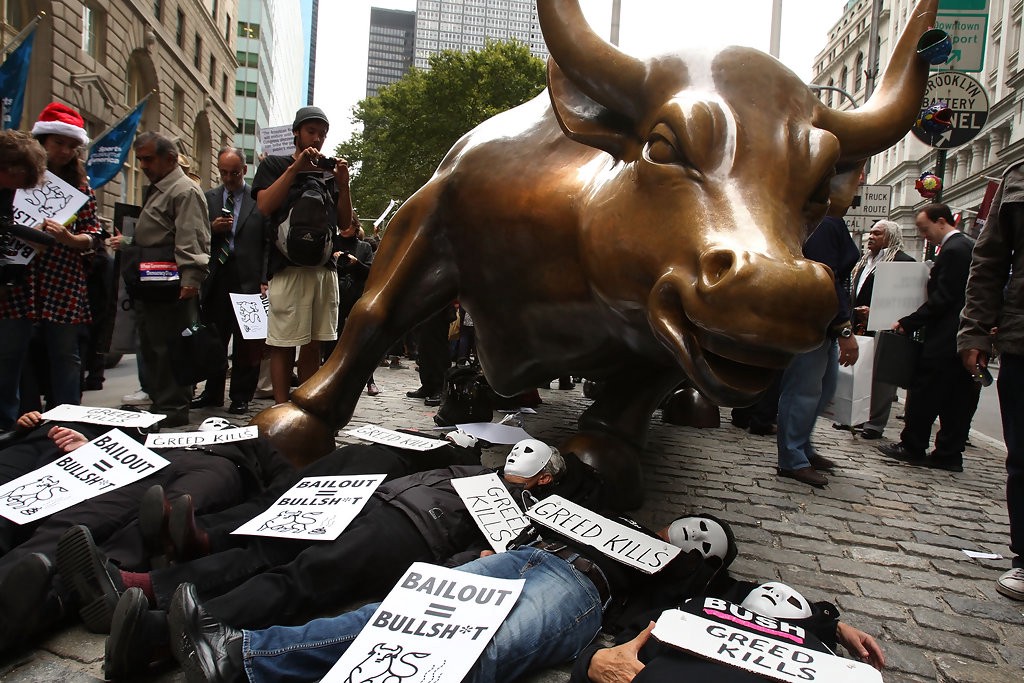New scientific research suggests that the world faces an imminent oil crunch, which will trigger another financial crisis.
A report by HSBC shows that contrary to industry mythology, even amidst the glut of unconventional oil and gas, the vast bulk of the world’s oil production has already peaked and is now in decline; while European government scientists show that the value of energy produced by oil has declined by half within just the first 15 years of the 21st century.
The upshot? Welcome to a new age of permanent economic recession driven by ongoing dependence on dirty, expensive, difficult oil… unless we choose a fundamentally different path.
…
Last September, a few outlets were reporting the counterintuitive findings of a new HSBC research report on global oil supply. Unfortunately, the true implications of the HSBC report were largely misunderstood.
The HSBC research note — prepared for clients of the global bank — found that contrary to concerns about too much oil supply and insufficient demand, the situation was opposite: global oil supply will in coming years be insufficient to sustain rising demand.
Yet the full, striking import of the report, concerning the world’s permanent entry into a new age of global oil decline, was never really explained. The report didn’t just go against the grain of the industry’s hype about ‘peak demand’: it vindicated what is routinely lambasted by the industry as a myth: peak oil — the concurrent peak and decline of global oil production.
The HSBC report you need to read, now
INSURGE intelligence obtained a copy of the report in December 2016, and for the first time we are exclusively publishing the entire report in the public interest.
Read and/or download the full HSBC report by clicking below:
Headquartered in London, UK, HSBC is the world’s sixth largest bank, holding assets of $2.67 trillion. So when they produce a research report for their clients, we should listen.
Among the report’s most shocking findings is that “81% of the world’s total liquids production is already in decline.”
Between 2016 and 2020, non-OPEC production will be flat due to declines in conventional oil production, even though OPEC will continue to increase production modestly. This means that by 2017, deliverable spare capacity could be as little as 1% of global oil demand.
This heightens the risk of a major global oil supply shock around 2018 which could “significantly affect oil prices.”
The report flatly asserts that peak demand (the idea that demand will stop growing leaving the world awash in too much supply), while certainly a relevant issue due to climate change agreements and disruptive trends in alternative technologies, is not the most imminent challenge:
“Even in a world of slower oil demand growth, we think the biggest long-term challenge is to offset declines in production from mature fields. The scale of this issue is such that in our view rather there could well be a global supply squeeze some time before we are realistically looking at global demand peaking.”

Under the current supply glut driven by rising unconventional production, falling oil prices have damaged industry profitability and led to dramatic cutbacks in new investments in production. This, HSBC says, will exacerbate the likelihood of a global oil supply crunch from 2018 onwards.
Four Saudi Arabias, anyone?
The HSBC report examines two main datasets from the International Energy Agency and the University of Uppsala’s Global Energy Systems Programme in Sweden.
The latter, it should be noted, has consistently advocated a global peak oil scenario for many years — the HSBC report confirms the accuracy of this scenario, and shows that the IEA’s data supports it.
The rate and nature of new oil discoveries has declined dramatically over the last few decades, reaching almost negligible levels on a global scale, the report finds. Compare this to the report’s warning that just to keep production flat against increasing decline rates, the world will need to add four Saudi Arabia’s worth of production by 2040. North American production, despite remaining the most promising in terms of potential, will simply not be able to fill this gap.
Business Insider, the Telegraph and other outlets which covered the report last year acknowledged the supply gap, but failed to properly clarify that HSBC’s devastating findings basically forecast the long-term scarcity of cheap oil due to global peak oil, from 2018 to 2040.
The report revises the way it approaches the concept of peak oil — rather than forecasting it as a single global event, the report uses a disaggregated approach focusing on specific regions and producers. Under this analysis, 81% of the world’s oil supply has peaked in production and so now “is post-peak”.
Using a more restrictive definition puts the quantity of global oil that has peaked at 64%. But either way, well over half the world’s global oil supply consists of mature and declining fields whose production is inexorably and irreversibly decreasing:
“If we assumed a decline rate of 5%pa [per year] on global post-peak supply of 74mbd — which is by no means aggressive in our view — it would imply a fall in post-peak supply of c.38mbd by 2030 and c.52mbd out to 2040. In other words, the world would need to find over four times the size of Saudi Arabia just to keep supply flat, before demand growth is taken into account.”
Read the full report HERE.
Nafeez Ahmed is an investigative journalist, recovering academic, and he is constantly tracking the Crisis of Civilisation. Follow him on Medium, where this article was first published by Insurgent Intelligence, a crowd-source funded news platform.
The opinions expressed in this article are solely those of the author.







